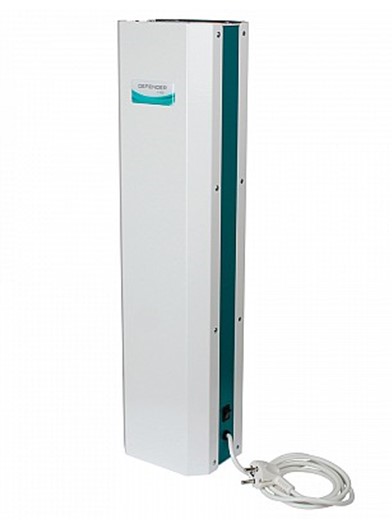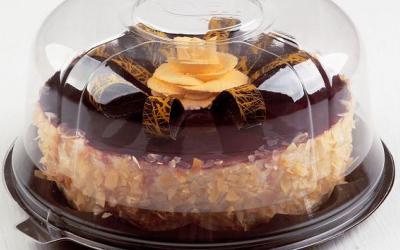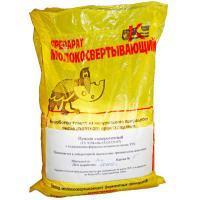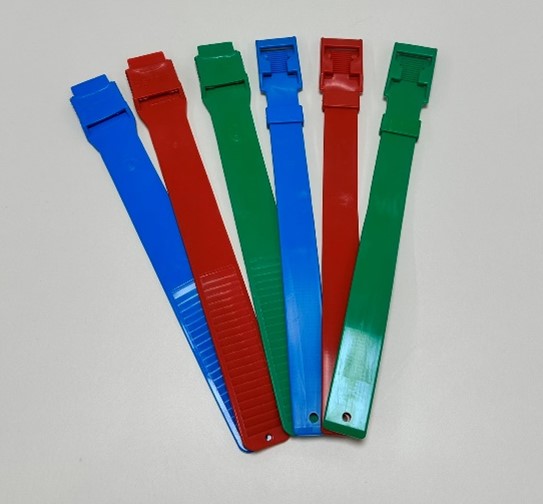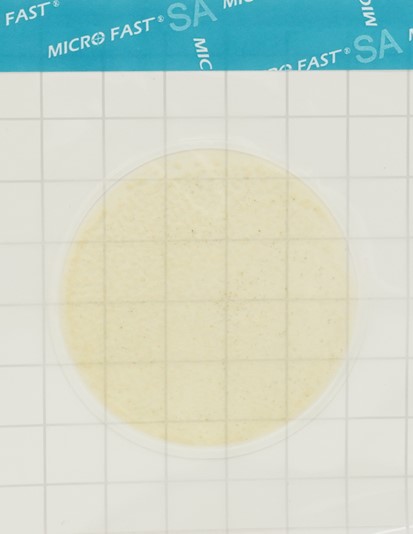Five inventions that will help fight the lack of water on the planet
The scarcity of water in many regions has made its extraction and conservation particularly pressing. Only 2.5% of the total reserves on the planet are fresh water. As the population grows, the conservation and efficient use of water resources will become increasingly important. Innovations aimed at conserving water are already appearing on the market. Here are the most interesting ideas that have emerged from scientists and startups around the world over the past year.
Green economy How to save water. RBC course and "Sedge High" - lesson 6 Apparatus for washing clothes with water from the shower
The average washing machine consumes 50 to 80 liters of water at a time - and this is in a world where more than two billion people live in countries with insufficient water supplies. A new device, developed by British company Lylo Products , is a cost-effective alternative: it washes clothes with recycled shower water.
Water is collected in a removable tank, which is placed on the shower floor in the form of a rug. When you take a shower, this tank fills up. After that, the machine filters the water and uses it to wash clothes.
“Thanks to our device, people suddenly begin to understand that water reuse is possible and actually safe,” explains co-founder Joanne Powers. Another advantage of Lylo is its affordability, as the main target audience of the device is students on a limited budget using laundromats on campus.
By the end of 2022, the company plans to release several devices for pilot testing. They are needed to check how easy Lylo is to use and whether it needs to be improved. The creators want to see if it can make a significant difference in people's lifestyles before Lylo is put into commercial production.
Eco-friendly solar-powered distillationStartup Manhat from the UAE has developed plants for distilling water from the ocean. They are pyramid-shaped with an open top and equipped with tanks to collect condensate from the walls of the container. Water naturally evaporates from the world's oceans, and Manhat uses this process by combining it with another free resource, sunlight.
The innovative system will benefit island and coastal cities and countries where the threat of sea level rise is particularly high in the coming years. Such distillation plants do not require electricity or energy from fossil fuels, they are easy to use, portable and affordable.
Green Economy Goodbye Bordeaux: Ten Unpleasant Consequences of Global Warming
Manhat is now experimenting with rig formats to standardize the end product for ease of production and scalability. Initially, the company plans to locate its installations in Singapore.
Recirculating shower systemWhen you spend too much time in the shower, not only is the water wasted, but the energy used to heat it up is also wasted. To reduce the environmental footprint of daily showers, the Danish company Flow Loop has developed the innovative Eco Loop recirculating shower system. Unlike conventional, it does not let warm water into the sewer. Instead, water is continuously circulated through the system: collected, passed through a filtration system, and re-pourned through the showerhead. And so on until the user finishes washing.
Water goes through several stages of purification. The pre-filter and micro-filter prevent large and small particles from entering the system. The ultrasonic cleaner then removes the limescale and the UV filter destroys bacteria, viruses and other microorganisms.
The implementation of the system from Flow Loop does not require major repairs to the bathroom. The company claims that the device can be placed in an existing shower and connected to the plumbing in less than half an hour. Another difference with Eco Loop is the pump, which makes the water pressure 50% stronger than other water-saving shower solutions.
The Eco Loop costs $4,000-6,000, but manufacturers claim their system pays for itself quickly, as it reduces water use by 85% and cuts energy use by 75% compared to a standard shower.
Green Economy Living Water: Five Progressive Treatment Technologies Portable device for obtaining water from air
Some people living outside the city are accustomed to using portable electricity generators. And the Israeli company Watergen has developed a portable atmospheric water generator. The device allows you to independently produce fresh water for those who travel or live in a motorhome.
The user only needs to plug the Mobile Box into a 12-volt or 220-volt outlet that is in the vehicle. The device sucks air through a fan, then passes it through a filter and a heat exchanger, which uses condensate to extract water from the air. After that, the water passes through a filtration system that includes ultraviolet light to kill bacteria, and finally enters the storage tank.
According to the developers, the system can produce about 20 liters of water per day. The Mobile Box also has a larger On Board version that produces up to 50 liters of potable water per day and can be placed on the rooftop. The system eliminates the need for plastic bottles and water containers.
"Smart" meters to control water consumptionDanish company Aguardio has come up with a sensor that monitors shower water usage and alerts users to the amount of resources spent, helping to reduce shower time. Another Aguardio sensor attaches to the toilet drain and detects leaking valves, notifying owners of the problem.
Information from the sensors is transmitted to a cloud-based control panel, which provides users with real-time analysis of water and energy consumption while showering. The company's own research has shown that after installing the device, water consumption from the shower is reduced by 30%. The leakage sensor can be used as a stand-alone device in a single toilet, or networked with other devices to cover the entire building, such as in eco-hotels, sustainable housing estates, and even businesses.
A similar water meter was developed by the Californian company Nudge Systems. Pleco smartwatches attach to a standard water meter and provide real-time information about how much water is being used in the home. The system analyzes the water consumption in the shower, toilet and when starting the washing machine, and also fixes leaks.








